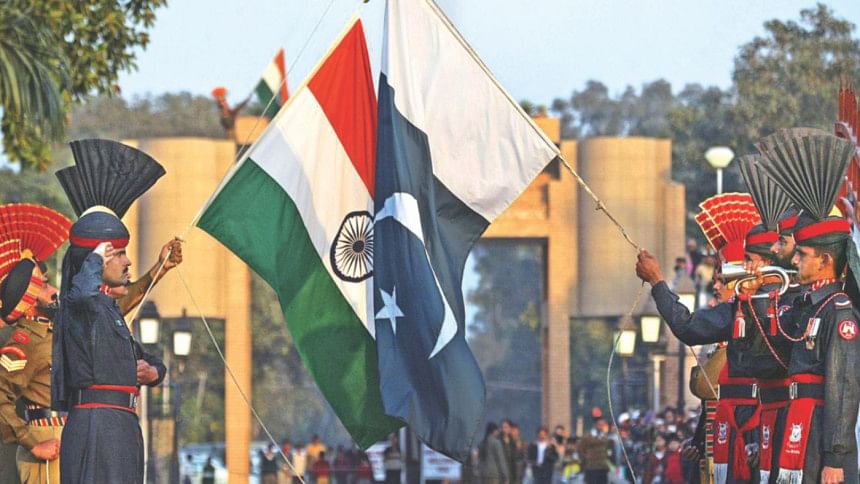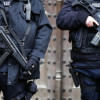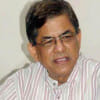India's China Problem in Pakistan

One can only hope that the latest tensions between India and Pakistan, which erupted after a terrorist attack last month killed over 40 Indian paramilitary policemen and injured several others in the Pulwama district of the northern Indian state of Jammu and Kashmir, will be resolved peacefully. But however the crisis ends, the conflict between the two countries has cast an interesting light on a third: China.
The latest attack in Jammu and Kashmir, which borders Pakistan, has triggered renewed questions about China's continued protection of the Pakistan-based terror outfit Jaish-e-Mohammed (JeM). JeM was quick to claim credit for the bombing, carried out by a 21-year-old suicide bomber who detonated some 300 kilograms of RDX in an attack on a 78-vehicle police convoy.
India has a humiliating history with JeM's founder and chief, Maulana Masood Azhar, who was released from an Indian prison in 1999, along with two other terrorists, in exchange for the passengers aboard an Indian Airlines flight that Pakistani terrorists hijacked to Kandahar in then-Taliban-ruled Afghanistan. (One of those released with Azhar was responsible for the subsequent murder of American journalist Daniel Pearl.) JeM then proceeded to launch several terror attacks on India, including a 2016 assault on an army base in Uri, also in Jammu and Kashmir, that killed 19 soldiers and prompted a much-publicised retaliatory "surgical strike" on a JeM training camp.
Although Pakistan fights some hardline Islamist terrorists (notably the so-called Pakistani Taliban, which seeks to overthrow Pakistan's government), it also pursues its strategic goals by sponsoring, training, equipping, and financing terror groups that attack targets in India, Afghanistan, and Iran. In Pakistan's macabre tango with terrorism, Azhar and JeM are openly based in the town of Bahawalpur, running training facilities and armed camps in several locations, including Balakot (which the Indian Air Force targeted in an airstrike on February 26).
Azhar travels and speaks freely throughout Pakistan, flaunting his terrorist credentials, as does Hafiz Saeed, chief of the Lashkar-e-Taiba and alleged mastermind behind the "26/11" attacks that killed 166 civilians in Mumbai in 2008. The Indian government has been attempting to have Azhar sanctioned under United Nations Security Council Resolution 1267, which would freeze his bank accounts and restrict his movements outside Pakistan. But, though 14 of the Security Council's 15 members support such a designation, China, Pakistan's staunch ally, has blocked it three times.
The reasons for China's intransigence are not hard to discern. It describes itself as an "all-weather" ally of Pakistan, which it sees as a useful counterweight to India. Pakistan is, moreover, a key element in China's Belt and Road Initiative, (BRI), a centerpiece of which is the China-Pakistan Economic Corridor (CPEC), which will connect western China to the port of Gwadar on Pakistan's Balochistan coast.
The USD-66-billion CPEC project, when complete, will be China's single biggest overseas development project, and will reduce transport costs for Chinese trade with the Persian Gulf by more than half. It is a prestige project for China and an economically crucial one, and it seems to guarantee Pakistan's indispensability in China's geopolitical calculations for a long time to come.
Though China dutifully joined in the chorus of global voices condemning the February 14 suicide bombing, its government again made clear that it was in no hurry to lift its hold on sanctioning Azhar. "We are deeply shocked by this attack. We express deep condolences and sympathy to the injured and bereaved families," Chinese foreign ministry spokesman Geng Shuang said, but oddly cited UN "procedure" to reaffirm his government's position.
Indian Prime Minister Narendra Modi, who is facing national elections starting in April, is under considerable domestic pressure to act decisively against JeM. At a public event soon after the Pulwama incident, Modi said: "There is a lot of anger, the blood of the people is boiling… We will give a fitting, jaw-breaking response. We will bring to justice the forces behind the attack." The downing of an Indian jet and the capture and subsequent release of its pilot may have helped begin the de-escalation of the crisis. But though the two countries were brought to the brink of war, India knows that its main options are diplomatic.
India's desire to "isolate" Pakistan internationally for its support of terrorism has foundered on China's great wall of support for the government in Islamabad. Other countries, too, have bilateral reasons not to isolate Pakistan. The US needs Pakistan because of Afghanistan, and especially as a conduit to negotiating a deal with the Afghan Taliban.
And yet Modi is particularly embarrassed by China's continued support for Pakistan, which flies in the face of the much-touted "Wuhan spirit" he claimed to have established with President Xi Jinping after their summit last year in the central Chinese city. When he was the opposition leader, Modi had sharply criticised India's government for its alleged appeasement of China. But, since he became prime minister, China has continued to block India's entry into the Nuclear Suppliers' Group. Nor has Modi been able to stop China from running the CPEC through the Pakistan-controlled part of Kashmir (which India regards as a violation of its sovereignty) or reaffirming its claims to the Indian state of Arunachal Pradesh (which the Chinese regard as "south Tibet"). Today the Wuhan spirit, if it ever amounted to more than press releases, is in tatters.
Last year, the Indian Parliament's Standing Committee on External Affairs (which I chair) issued a report on Sino-Indian relations that took the Modi government to task for being "overtly cautious" (sic) about China's sensitivities and argued that India cannot continue with its "deferential foreign policy towards China."
Following the Pulwama attack, the United States demanded that Pakistan "immediately end support and safe haven to all terrorist groups," and the United Kingdom and France have worked to pass a "presidential statement" in the Security Council condemning the suicide bombing and JeM terrorism. Despite China's initial objections, they have re-initiated the blacklisting of Azhar, a process which gives members until March 13 to take a stand. There is little doubt about how 14 countries will vote. Will China continue to serve as an enabler of terror?
Shashi Tharoor, a former UN under-secretary-general and former Indian Minister of State for External Affairs and Minister of State for Human Resource Development, is currently Chairman of the Parliamentary Standing Committee on External Affairs and an MP for the Indian National Congress.
Copyright: Project Syndicate, 2019.
www.project-syndicate.org
(Exclusive to The Daily Star)










Comments